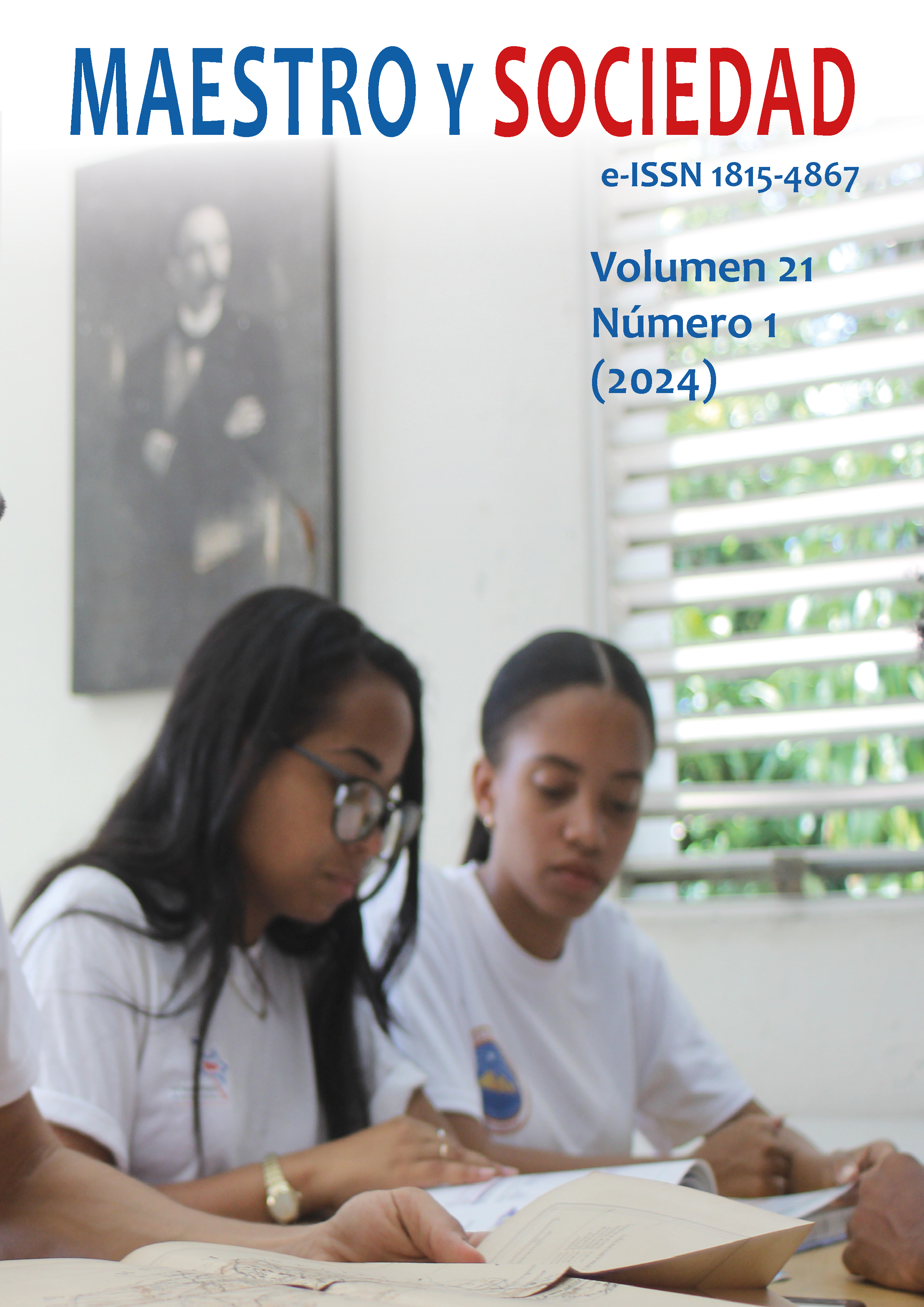Digital teaching resources based on gamification for solving mathematical problems in seventh year EGB students
Keywords:
gamification, mathematics education, problem solving, digital resources, student motivationAbstract
In an educational context where motivation and academic performance are crucial areas, this study focused on investigating the impact of gamification on improving mathematical problem solving in seventh grade students. The main objective was to evaluate the effectiveness of a partial gamified intervention, applied through digital teaching resources, in comparison with a control group. The sample comprised 42 students, equally divided between the experimental and control groups. Initial and subsequent surveys, specific problem-solving tests, interviews with teachers and validation by experts in pedagogy and gamification were implemented. The results revealed a significant increase in students' intrinsic motivation, as well as notable improvements in academic performance of the experimental group compared to the control group. Gamification, supported by expert validation, proved to be an effective pedagogical strategy to stimulate interest and improve mathematical skills. These findings highlight the importance of integrating innovative approaches in mathematics teaching, especially through digital tools and gamified strategies, to foster more participatory and effective learning.
References
Barana, A., Boetti, G., &Marchisio, M. (2022). Self-Assessment in the Development of Mathematical Problem-Solving Skills. Education Sciences, 12(2), 81.
Boesen, J., Helenius, O., Bergqvist, E., Bergqvist, T., Lithner, J., Palm, T., & Palmberg, B. (2014). Developing mathematical competence: From the intended to the enacted curriculum. The Journal of Mathematical Behavior, 33, 72-87.
Castro, M. Y. T., Yataco, P. V., Valdivia, M. I. V., & López, G. S. L. (2022). Desarrollo de las competencias matemáticas en entornos virtuales. Una Revisión Sistemática. Alpha Centauri, 3(2), 46-59.
De Corte, E. (2015). Mathematics-related beliefs of Ecuadorian students of grades 8–10. International Journal of Educational Research, 72, 1-13.
Espinales, A. M. (2018). Gamificación en el desarrollo de la competencia matemática: Plantear y Resolver Problemas. Sinapsis: La revista científica del ITSUP, 1(12), 7.
Franco-Zambrano, B. M., & Franco-Zambrano, C. N. (2023). Logical-mathematical thinking and creative didactics: study carried out in the eighth grade of the educational circuit 13D01_C07 Ecuador. Central European Management Journal, 31(2), 538-546.
García, F. Y. H., Rangel, E. G. H., & Mera, N. A. G. (2020). Gamificación en la enseñanza de las matemáticas: una revisión sistemática. Telos: revista de estudios interdisciplinarios en ciencias sociales, 22(1), 62-75.
Guanotásig, D. R. R., & Chicaiza, R. P. M. (2021). Gamificación: Estrategia para la enseñanza de operaciones elementales de matemáticas. EPISTEME KOINONIA: Revista Electrónica de Ciencias de la Educación, Humanidades, Artes y Bellas Artes, 4(7), 98-121.
Hamari, J., Shernoff, D. J., Rowe, E., Coller, B., Asbell-Clarke, J., & Edwards, T. (2016). Challenging games help students learn: An empirical study on engagement, flow and immersion in game-based learning. Computers in human behavior, 54, 170-179.
Ke, F. (2016). Designing and integrating purposeful learning in game play: A systematic review. Educational Technology Research and Development, 64, 219-244.
Landers, R. N., Auer, E. M., Collmus, A. B., & Armstrong, M. B. (2018). Gamification science, its history and future: Definitions and a research agenda. Simulation and Gaming, 49(3), 315-337.
Liljedahl, P., & Santos-Trigo, M. (2019). Mathematical problem solving. Springer International Publishing.
Matallaoui, A., Hanner, N., &Zarnekow, R. (2017). Introduction to gamification: Foundation and underlying theories. Gamification: Using Game Elements in Serious Contexts, 3-18.
Muñoz, J., Hans, J. A., & Fernández, A. (2019). Gamificación en matemáticas, ¿un nuevo enfoque o una nueva palabra?. Revista Epsilon, 101, 29-45.
Nadolny, L., Valai, A., Cherrez, N. J., Elrick, D., Lovett, A., & Nowatzke, M. (2020). Examining the characteristics of game-based learning: A content analysis and design framework. Computers & Education, 156, 103936.
Ortiz Aguilar, W., Ortega Chávez, W., Valencia Cruzaty, L. E., González Vásquez, Á. E., & Gamarra Mendoza, S. (2021). La educación estadística del ingeniero: reto de la educación superior. Universidad y Sociedad, 13(5), 307-318.
Ortiz Aguilar, W., Santos Díaz, L. B., & Revelo, E. R. (2020). Estrategias didácticas en entornos virtuales de enseñanza-aprendizaje universitarios. Opuntia Brava, 12(4).
Pagán, J. B., et al. (2023). Gamificación y aprendizaje ubicuo en educación primaria (Vol. 66). Grao.
Published
How to Cite
Issue
Section
License
Copyright (c) 2024 Nube Lucia Asitimbay Bermeo, Elizabeth Cumandá León Moscoso, Gregory Edison Naranjo Vaca

This work is licensed under a Creative Commons Attribution-NonCommercial-NoDerivatives 4.0 International License.
This journal provides immediate open access to its content, based on the principle that offering the public free access to research helps a greater global exchange of knowledge. Each author is responsible for the content of each of their articles.



























 Universidad de Oriente
Universidad de Oriente 